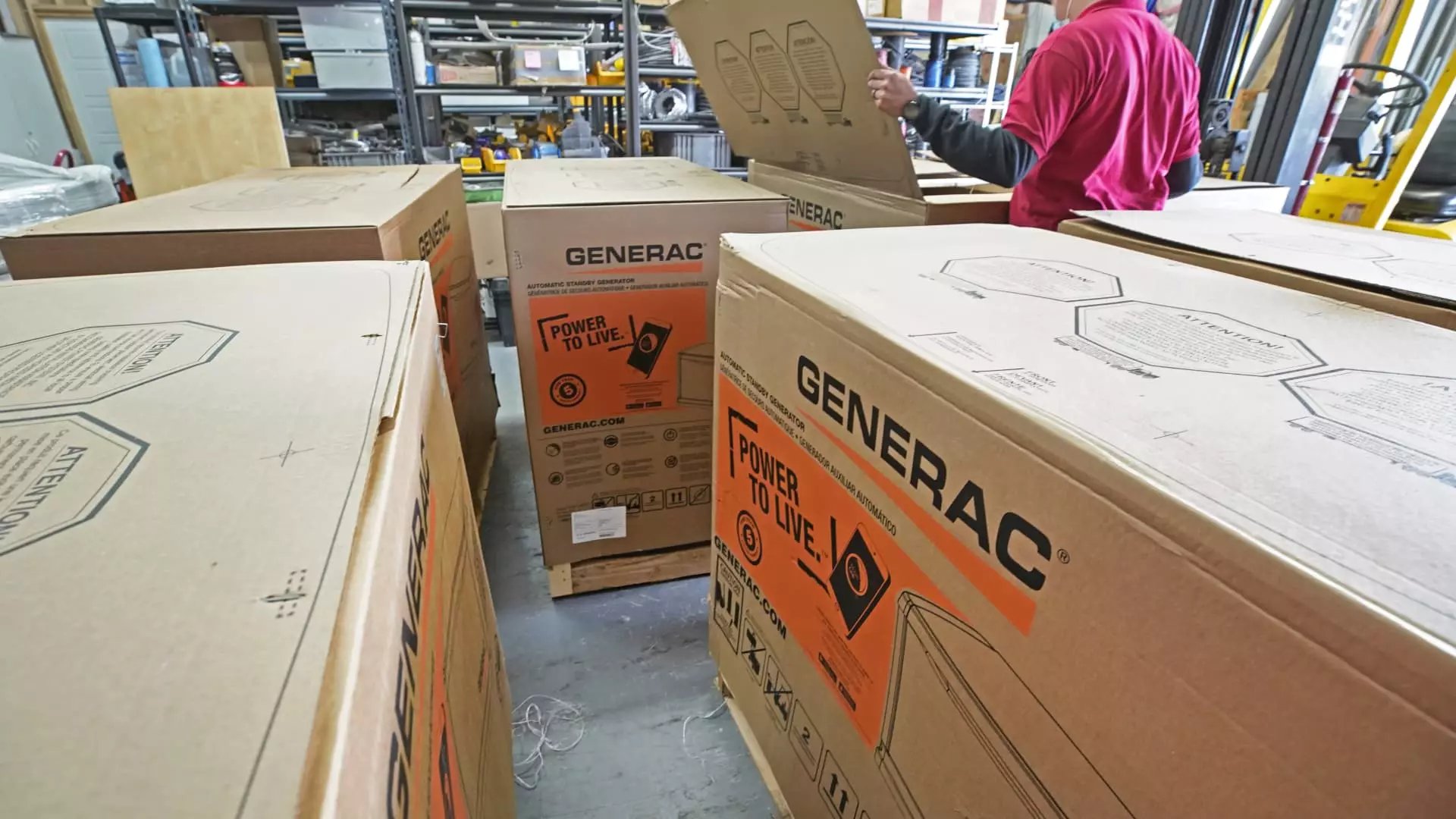As scorching heat engulfs vast regions of America and with hurricane season casting a looming shadow, investors are swooping in on Generac, the celebrated maker of backup generators. It’s a striking reflection of our society’s urgent adaptation to a rapidly changing climate—a climate in which such products are no longer luxuries but necessities. Up nearly 12% this week alone and marking its best performance since late 2024, Generac’s resurgence is a bittersweet reminder of our reality. The stock’s ascent is often hailed as a triumph, but it starkly highlights the severe infrastructure issues plaguing our nation.
High temperatures are sweltering through the heartland and the East Coast, beginning a relentless siege from the weekend. States like New York, New Jersey, and Illinois have experienced troubling power outages, leaving citizens stranded in heat that can become lethal. Reports from the National Weather Service further emphasize the scale of the crisis; about 130 million Americans are currently under heat warnings, a statistic that is alarming yet, sadly, almost routine. While these figures play to the hand of companies like Generac, they also illustrate a broader systemic failure. The strategy of advancing a business on the back of climate disaster raises serious ethical questions about our societal priorities.
Storms on the Horizon: A Forecast of Chaos
The news from the National Oceanic and Atmospheric Administration (NOAA) about the upcoming Atlantic hurricane season is equally foreboding. With predictions of 13 to 19 named storms, and an ominous expectation that several will grow into major hurricanes, the storm clouds of destruction are gathering. Though tropical storm Andrea may have dissipated, it’s a stark warning of what is to come. This is not merely a tale of weather patterns but a glaring indication of climate change’s influence on storm activity—stronger, more unpredictable, and consequential.
Research from the Pacific Northwest National Laboratory corroborates this fear, estimating that the risk of power outages due to hurricanes could escalate by over 50%. As these storms intensify, so will the strain on an already shaky and overburdened power grid. The revelations echo CEO Aaron Jagdfeld’s previous remarks about the escalating pressure on our electrical systems, exacerbated by new demands from data centers and changing weather patterns. Recognizing that “this is only going to get worse” is a critical acknowledgment—one that adds a layer of urgency and calls for a comprehensive reevaluation of infrastructure.
The Growing Demand and the Utility Dilemma
The forecast from Bank of America hints at a growing electrical load projected to rise at a 2.5% annual growth rate through 2035, an indicator that our energy systems are at a breaking point. This isn’t just a theoretical situation; it’s a reality requiring immediate attention to upgrade our infrastructure to a more resilient state. Companies like Trane Technologies, which specializes in creating cooling systems, stand to gain, but at what cost? Profiting from climate change-induced necessity often feels like a Faustian bargain.
In this landscape, utility stocks are seen as a lifeline, buoyed by rising demand and enhancements in operational margins thanks to strategic data center deals. Yet the concern remains—will these companies continue to prioritize profit over the resilience necessary to weather a changing climate? The “significant tailwinds” expected for utility stocks may sound advantageous, but this trend must not obscure the urgent need for systemic changes that address the underlying vulnerabilities of the power sector.
The Ethical Imperative for Action
In a rapidly transforming world, the intersection of environmental degradation and financial gain is fraught with peril. While lagging stocks may find new catalysts to stimulate growth, we must seriously question the foundation upon which these profits are built. The financial success of companies like Generac and utility firms should not serve as an affirmation of our current path; they should be a clarion call for a united push towards sustainable solutions.
As these patterns unfold, Americans are left grappling with extreme weather events and an aging power infrastructure—merely managing the consequences rather than addressing their root causes. The investment opportunities may be alluring, but they risk obscuring the urgent, palpable distress experienced by millions. In this climate, prioritizing human life and societal resilience should overshadow the financial metrics that currently dominate investor conversations.

